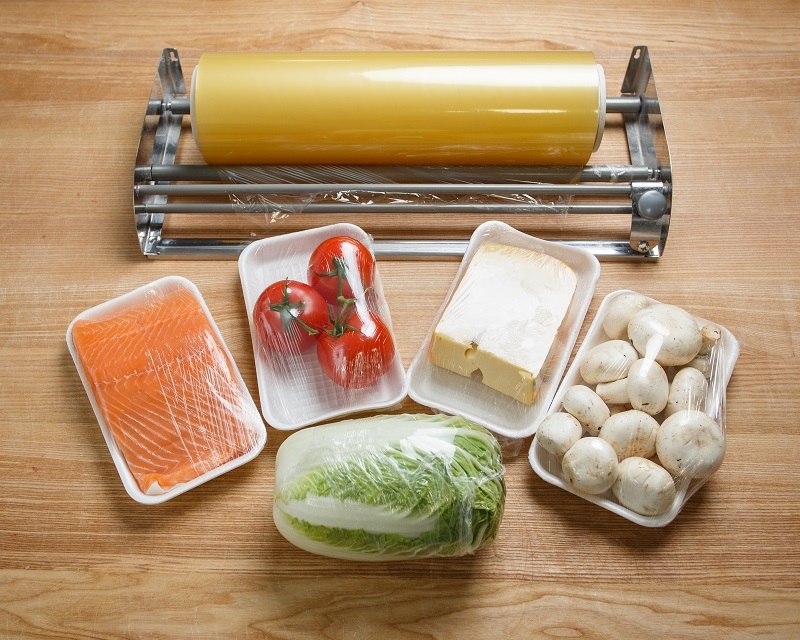A Guide to Saving on Food: 10 Practical Tips That Work!

Food expenditures comprise a big chunk of most household budgets; hence, many families consider food saving a priority. Rising food prices can strain finances and prevent spending on other necessities or leisure. Thus, learning how to cut back on food spending is helpful in curtailing monthly budgets, fostering wise purchasing, and decreasing wastage.
On the flip side, food expenditure reduction does not compromise quality or nutrition. Smart shopping, meal planning, and wise spending can all be easily practiced by anyone. In this article, we shall present some easy food savings strategies that will still allow one to enjoy wholesome and tasty meals prepared at home.
Don’t miss out on the Best Smart TVs Under $500 for Ultimate Streaming & Gaming.
Tips For Saving Money On Food Shopping
Tip 1: Plan Your Meals Weekly
Meal planning is a major consideration in food savings. By exactly knowing what you will cook, you can avoid doing impulse buys, which may sometimes lead to more spending. Meal planning also helps others reduce food waste through the use of ingredients, thereby ensuring nothing is forgotten and wasted.
In other words, with meal planning apps or printable planners, one may plan a grocery list and set up meals ahead of time. This allows money to be saved, as well as time and stress on a busy weekday. Weekly meal planning creates a solid foundation for doing grocery shopping smarter and within one's budget.
Tip 2: Make a Detailed Shopping List
Creating a detailed shopping list is essential for saving money on food and staying on budget. By listing exactly what you need, you avoid impulse purchases that can quickly add up. Organize your list by store sections, such as produce, dairy, meats, and pantry, to make shopping more efficient and reduce the temptation to wander into unnecessary aisles. Sticking strictly to your list helps keep your spending focused and prevents buying items you don’t need. A well-planned list saves money and time, making grocery trips faster and more productive.
Tip 3: Shop Sales and Use Coupons
To maximize food money savings, buy the sale items and use coupons regularly. Check weekly store flyers, websites, and apps for discounts on the items you need. Digital couponing apps make clipping offers and applying them at checkout simple, while store loyalty programs offer exclusive deals and points for future savings.
For maximum savings, combine coupons with store sales. Shopping with promotions in mind allows you to stretch your money without compromising on quality. Being organized and aware of sales cycles helps ensure that you’ll get maximum value for your grocery dollars.
Tip 4: Buy in Bulk For Saving Money On Food
Buying bulk is the intelligent way to save on food, especially staples such as rice, pasta, canned goods, and frozen items such as vegetables and meats. These products tend to have a long shelf life before losing their freshness and often sell for less per unit if bought in large quantities.
However, monitor perishables to avoid wasting them, and ensure you have enough room to store and use the bulk before it expires. Bulk buying really comes into its own if planned carefully and tailored to the household's demands.
Tip 5: Choose Seasonal and Local Produce
Choosing seasonal and local produce is a great way to save money on food. It's one of the best tips for enjoying fresher, tastier fruits and vegetables while saving money. Seasonal items are often cheaper because they’re abundant and don’t require costly transportation.
Local farmers’ markets, co-ops, and community-supported agriculture (CSA) programs are excellent places to find these fresh, affordable options. Supporting local growers also helps the environment and strengthens your community.
Also, Explore these 3 Life-Changing Investments to Make in 2025.

Tip 6: Cook at Home More Often
Cooking at home is the best tip for saving money on food since it is an option much cheaper than eating out or getting takeout. Cooking at home gives you control over the ingredients, portion sizes, and waste. So simple recipes are the best for beginners, such as pasta, stir-fries, or sheet-pan dinners, which can be done with little skill or use of ingredients. So cooking at home saves money while also encouraging healthier eating habits and bonding with family.
Tip 7: Use Leftovers Creatively
Gloriously turning leftover food into new dishes is an intelligent way to save money and reduce waste. Leftover vegetables, meat, or grain work perfectly well in soups, salads, or stir-fries. Portions can be frozen for weeks and render a useful favor on those busy days. Enjoy recycling leftovers as you stretch your grocery budget; this way, you get to enjoy variety and cut down on food waste in the kitchen.
Tip 8: Store Food Properly to Extend Shelf Life
Proper food storage is essential for saving money on food and is one of the best tips on saving money on food by extending the shelf life of your groceries and reducing spoilage. Store fruits and vegetables separately; keep ethylene-producing fruits like apples away from leafy greens to prevent early wilting. Use airtight containers for dairy products and leftovers to maintain freshness longer.
Pantry staples like grains and cereals should be kept in cool, dry places in sealed containers to avoid moisture and pests. Freezing bread, meats, or excess produce is another great way to preserve food for later use. By mastering simple storage hacks, you can keep your food fresh, reduce waste, and stretch your grocery budget further.
Tip 9: Avoid Pre-Packaged and Processed Foods
The biggest piece of advice in saving money while improving health through eating is avoiding static, prepackaged, and processed foods. Whole foods, for example, fresh fruits, vegetables, beans, rice, and whole grains, are cheaper and healthier than foods that are typically laden with added sugars, salt, and preservatives, which usually pass through processing.
Raw ingredients allow you to cook anything you want, so that you can save costs and know everything that goes into your dish. These staples, such as oats, potatoes, carrots, and lentils, are exemplary, cheap, and versatile to apply in many recipes. Thus, buying whole, unprocessed foods is also the best thing to do for the budget and the lifestyle- the heart of all money-saving tips on food.
Tip 10: Track Your Food Spending
This means it helps you save money. Maintain a budget or food diary in which you record amounts for grocery shopping and dining out. This will help you review your spending so that you can see areas where you can cut back or make better choices. When you are aware of your habits, it becomes easy for you to adjust your shopping or eating behavior accordingly to control the amount you spend and remain within your budget.
You might like reading about Sustainable Fashion: How to Build an Eco-Friendly Wardrobe?
Conclusion
Saving money on food doesn’t have to be complicated. By using practical money-saving tips on food like meal planning, smart shopping, buying seasonal produce, and properly storing your groceries, you can significantly cut your food costs without sacrificing quality or taste. Avoiding impulse buys, cooking at home, and tracking your spending helps you stay on budget and reduce waste. Implement these tips consistently, and you’ll enjoy healthier meals and a fuller wallet, making your food budget work smarter in 2025 and beyond.
This content was created by AI
